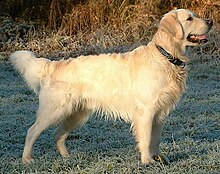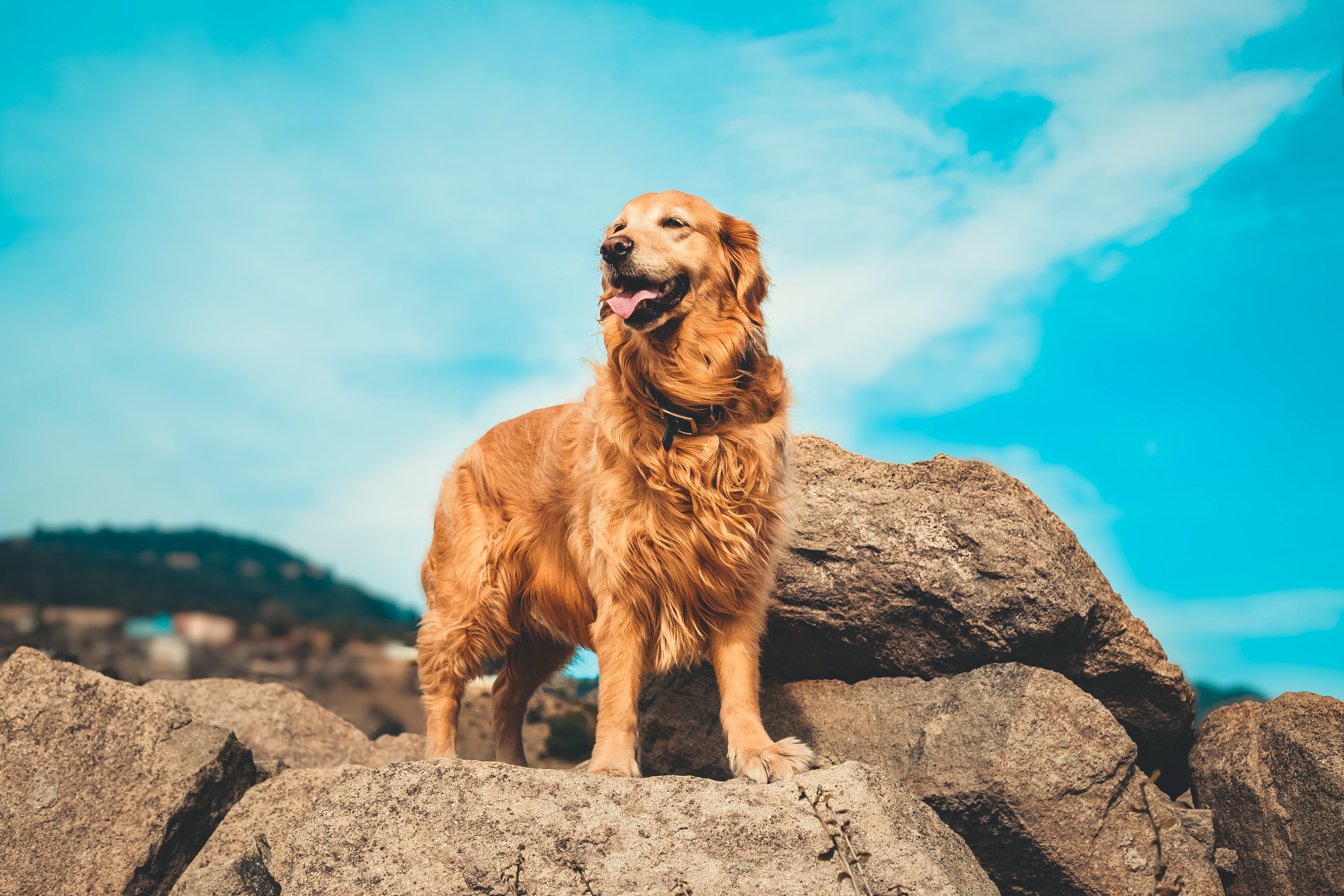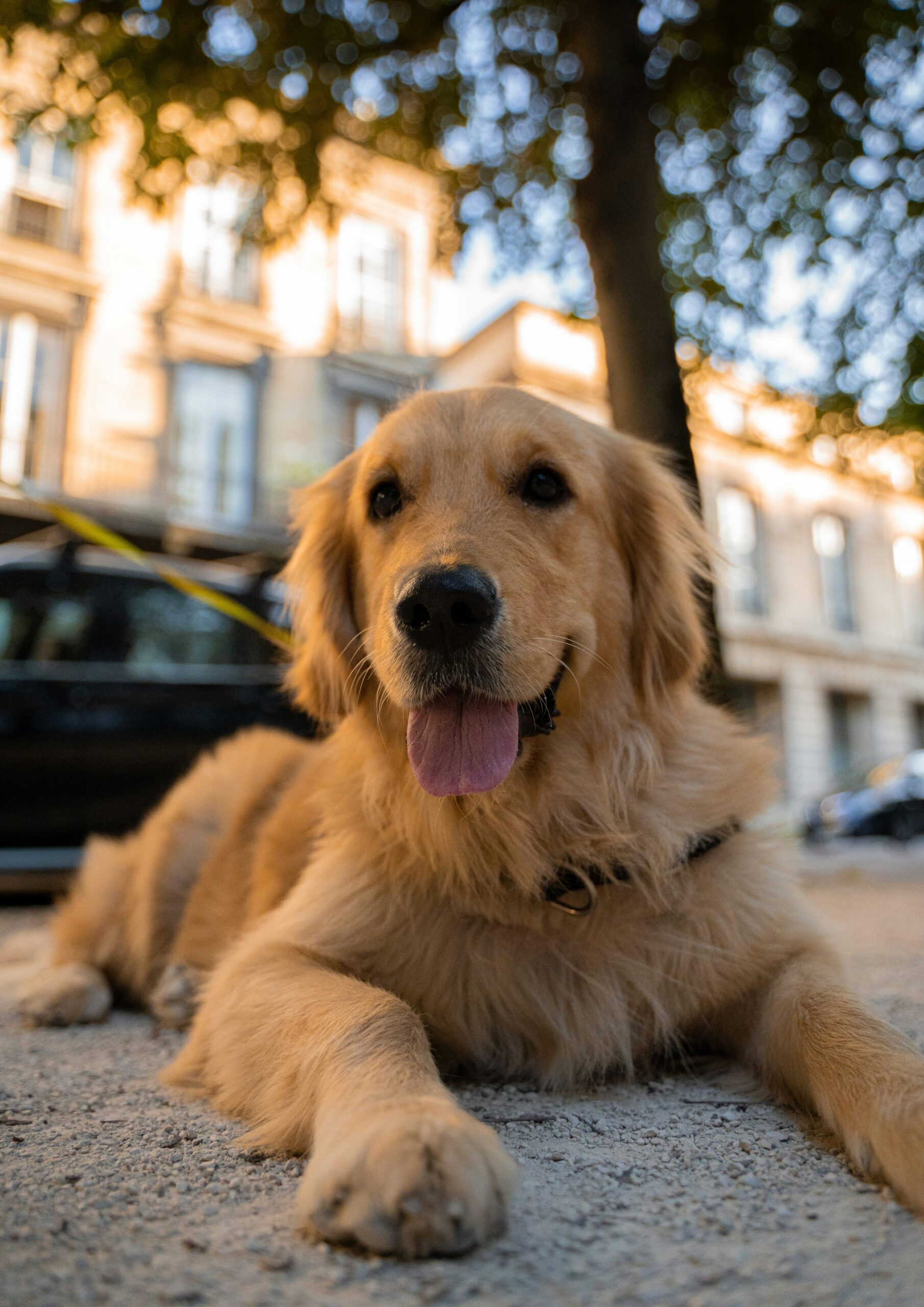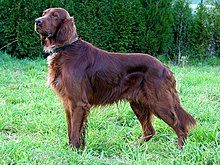
The Golden Retriever, renowned for its warm personality and striking golden coat, stands as a beloved and sought-after dog breed. Originating from Scotland, these dogs were initially bred as skilled retrievers, showcasing their intelligence and adaptability. With an innate eagerness to please and a gentle disposition, Golden Retrievers have seamlessly transitioned into cherished family companions and skilled service animals. Their unwavering loyalty, coupled with a natural affinity for human interaction, makes them exceptional therapy dogs and beloved household members. Whether embarking on outdoor adventures or offering steadfast companionship, the Golden Retriever’s endearing qualities have solidified its position as one of the most cherished and iconic breeds in the canine world.
The Golden Retriever is a member of the AKC Sporting Group.
Breed Characteristics
| Dog Breed | Golden Retriever |
| Breed Popularity (AKC) | 3 |
| Country of Origin | Scotland |
| Personality | Intelligent, friendly, kind, loyal, good-natured |
| Life Expectancy | 10-12 yrs |
| Height | 22-24 in |
| Weight | 55-75 lbs |
| Color | Golden |
| Coat | Flat or wavy double coat with good feathering, dense water-resistant undercoat |
| Shedding | Seasonal |
| Grooming | Weekly Brushing |
| Health Problems | Hip dysplasia, cancer, skin allergies |
| Trainability | Eager to Please |
| Exercise Needs | Needs Lots of Activity |
Golden Retriever History
The Golden Retriever originated in the Scottish Highlands in the mid-19th century. They were developed by crossing the now-extinct Yellow Retriever with the Tweed Water Spaniel and were later crossed with Bloodhounds, Irish Setters, and more Tweed Water Spaniels. The breed’s development aimed to create a reliable retriever breed that thrived in the rainy Scottish climate and challenging terrain, particularly for retrieving game from both water and land.
Temperament
Golden Retrievers possess a radiant personality, characterized by affectionate and friendly traits. Their trainability is impressive, largely due to their high intelligence and eagerness to please. They are incredibly social dogs with low aggressiveness and reactivity. Being pet-friendly, they gel well with other animals and are remarkably child-friendly. Although they can be playful and have a moderate energy level, they are also sensitive and benefit from consistent, gentle training methods. They have a lower dominance level, making them well-suited for families.
Remember, while breed traits provide a general idea, individual dogs can have personalities that differ from the breed standard. Always spend time getting to know the dog and ensure their needs and temperament align with your lifestyle.
Grooming Requirements
Golden Retrievers have a beautiful, water-repellent outer coat with a dense undercoat. Some coats are wavy, while others are straight. This breed requires regular brushing to prevent knots and tangles and to control shedding. Using a quality dog shampoo, bathing is recommended every two months or so, depending on how dirty the dog gets. Standard grooming practices, such as nail trimming and ear checking, are also necessary for this breed.
Golden Retriever Health
Golden Retrievers generally live for 10-12 years. They can be prone to certain cancers, hip dysplasia, and elbow dysplasia. Regular vaccinations, deworming, and flea prevention are essential. Given their thick coat, skin allergies can be a concern. A balanced diet with high-quality dog food is crucial to prevent obesity.
Exercise Needs
Golden Retrievers are friendly and social dogs. Regular walks and trips to the dog park play a significant role in their routine. Their love for playtime, especially fetch, is unparalleled. Bonding activities like agility training can help channel their intelligence and energy positively. Regular exercise is necessary to maintain their weight and to cater to their high energy level.
Training
Starting with obedience training early is pivotal for Golden Retrievers. Their gentle disposition and willingness to please make them ideal candidates for learning commands quickly. Behavior problems are rare, but when they arise, a consistent and gentle approach, coupled with crate training, often proves effective. Socialization is paramount, ensuring that their inherent soft-mouthed nature is complemented by a well-adjusted temperament. Given their intelligence, potty training typically proves a smooth experience for most Golden owners.
Golden Retriever Pictures



Related Dog Breeds
More Dog Resources
Are you thinking about getting a puppy? Make sure to check out our list of important questions to ask before you adopt a puppy.
We also have many resources to help, from naming your puppy to socialization resources and training tips.
Take me back to the Ultimate Guide to Dog Breeds



